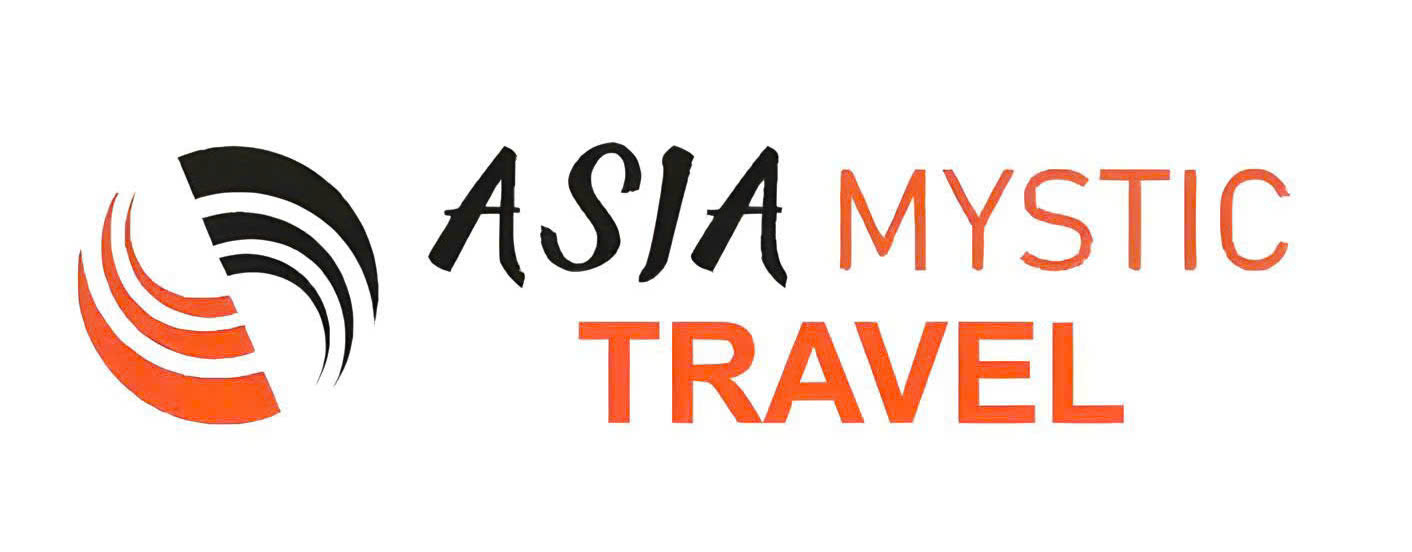
10 Things To Do In Ho Chi Minh City: Food, Culture & Adventure
History of the City
Before we dive into what to do in Ho Chi Minh City, it helps to understand the city’s complex identity.
Originally a small Khmer fishing village known as Prey Nokor, the area was absorbed into Vietnam in the 17th century and later developed into a major port under the Nguyen Dynasty. During French colonial rule, the city was known as Saigon and served as the capital of Cochinchina, the southernmost part of French Indochina.
After the Vietnam War ended in 1975 and the country was reunified, Saigon was officially renamed Ho Chi Minh City, in honor of President Ho Chi Minh, the revolutionary leader who led North Vietnam to victory.
However, the name Saigon still lives on in everyday speech, especially when locals refer to the inner city or cultural elements, such as “Saigon beer” or “Saigonese food.” Today, both names are used interchangeably, and you’ll often hear residents say "I'm from Saigon" with pride.
Top 10 Things to Do in Ho Chi Minh City
From historic landmarks and bustling markets to rooftop cocktails and street food adventures, Ho Chi Minh City offers an endless mix of experiences for every kind of traveler. Below are the top 10 things to do in Ho Chi Minh City that will help you truly experience the heart and soul of there.
Visit the War Remnants Museum
Start your journey with a visit to the War Remnants Museum, a sobering but necessary introduction to Vietnam’s modern history. Through raw photography, preserved aircraft, and personal stories, this museum offers a powerful look at the Vietnam War from the Vietnamese perspective. It’s not just a museum, it’s an emotional experience that leaves many visitors speechless.
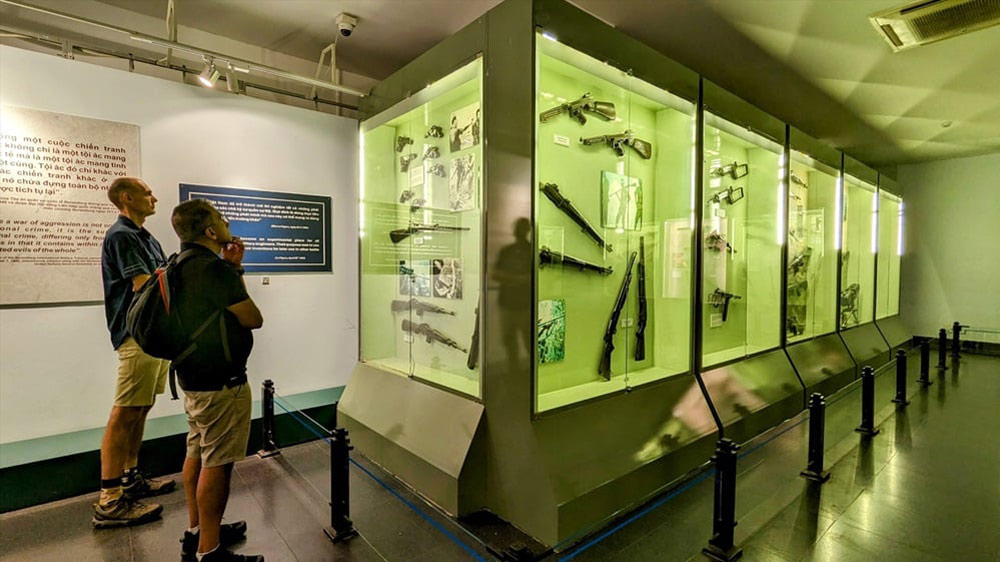
Marvel at the Notre-Dame Cathedral and Central Post Office
Right in the heart of District 1 lie two of the city’s most iconic French colonial landmarks: the Notre-Dame Cathedral Basilica of Saigon and the Central Post Office. Built in the late 19th century, they’re architectural gems with European charm and local spirit.
The cathedral is currently under renovation (as of 2025), but you can still admire its red-brick façade and twin bell towers. Step next door into the Central Post Office to admire its vaulted ceiling and wrought ironwork, which was designed by Gustave Eiffel, no less.
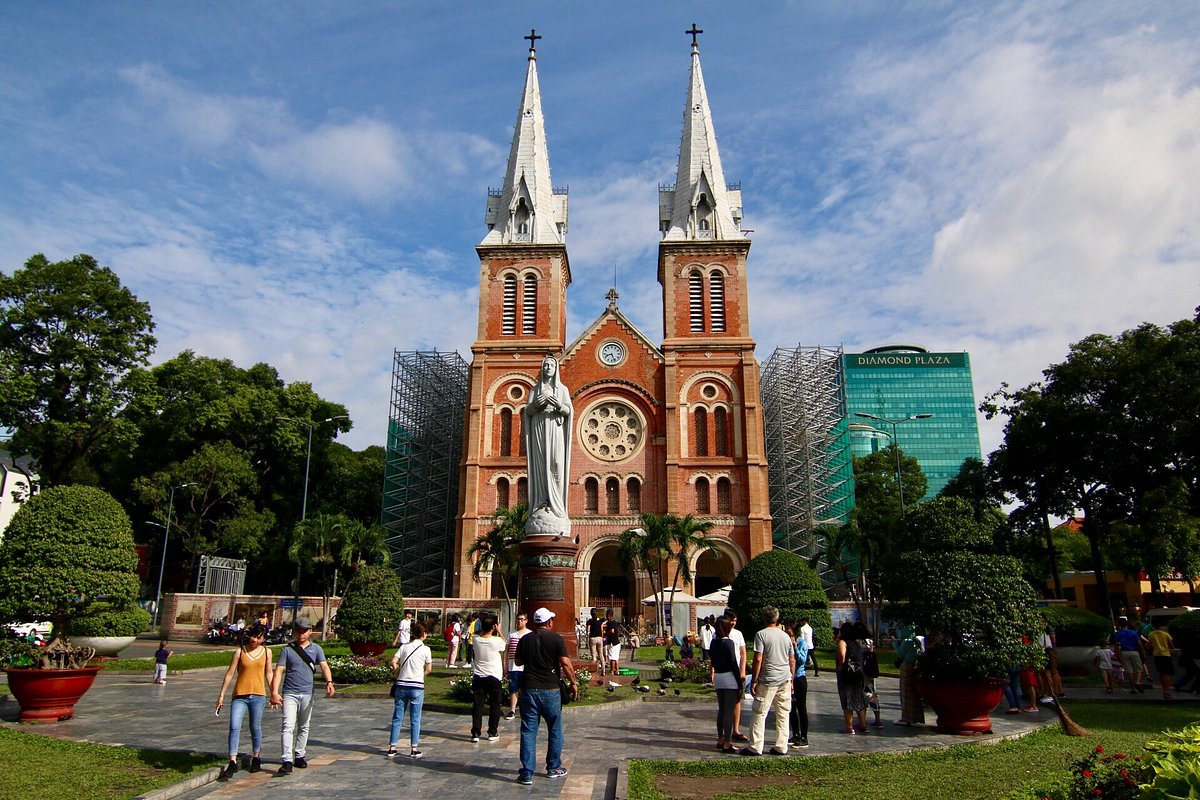
Shopping and Trying Street Food in Ben Thanh Market
A visit to Ben Thanh Market is a sensory overload. Stalls selling spices, lacquerware, souvenirs, and knockoff brands stretch endlessly. But the real magic happens in the food section. Grab a stool, point to something you can’t pronounce, and enjoy a local delicacy.
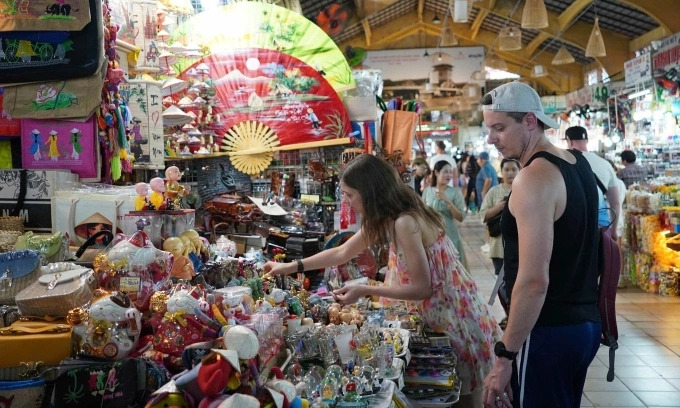
Cruise the Saigon River at Sunset
There’s something magical about seeing Ho Chi Minh City from the water. A sunset cruise on the Saigon River offers a break from the traffic madness, replacing honking scooters with serene views and gentle breezes.
You can choose from luxury dinner cruises with live music, budget-friendly ferry rides for a local experience, or private boat rentals for couples or groups.
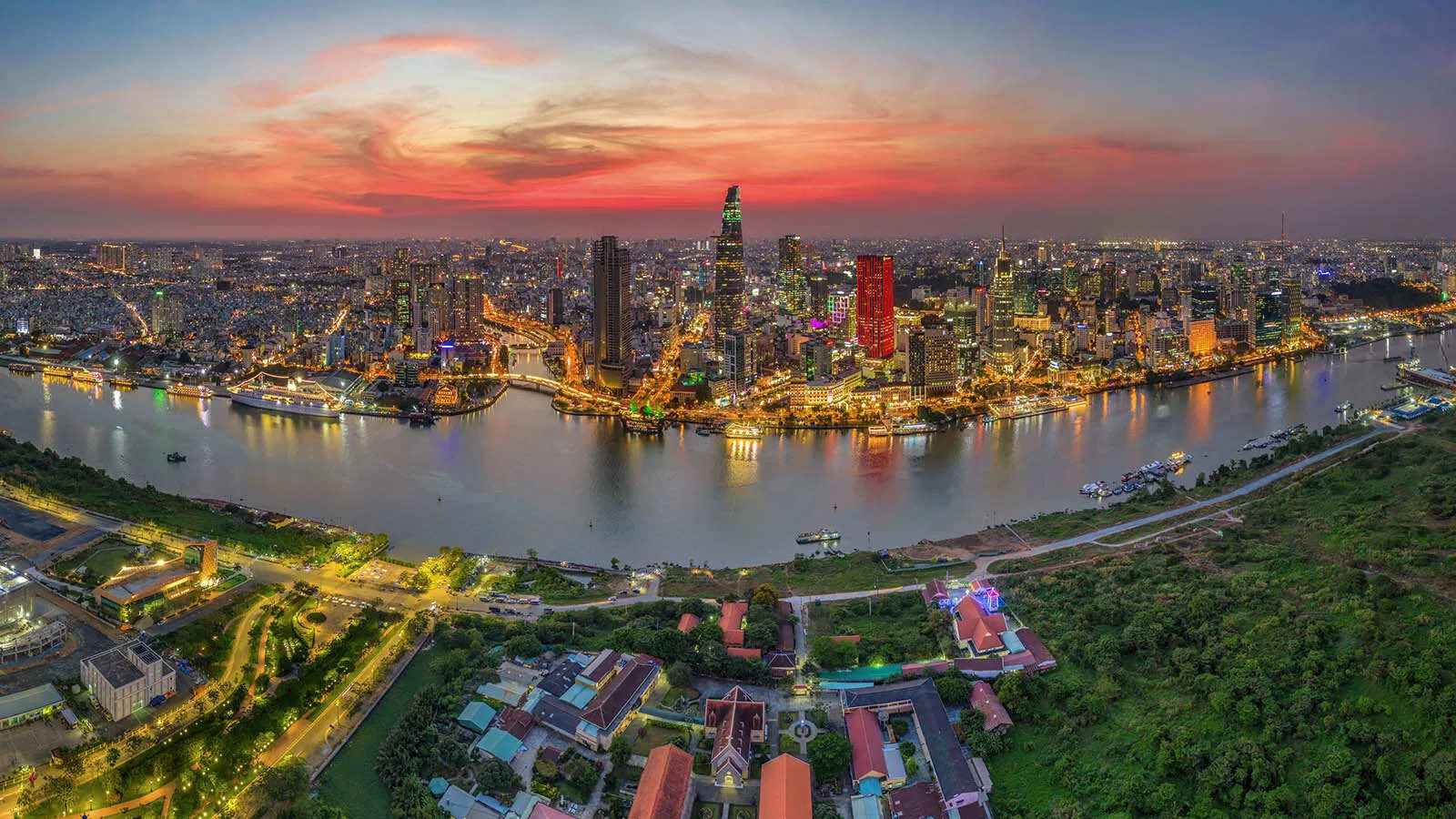
Explore Cu Chi Tunnels
Located just 1.5 hours from central Ho Chi Minh City, the Cu Chi Tunnels offer a powerful and immersive look into the guerrilla warfare tactics used by the Viet Cong during the Vietnam War. This massive underground network spans over 200 kilometers and includes living quarters, kitchens, weapon storage, and trap systems.
Visitors can crawl through a section of the preserved tunnels, observe ingenious booby traps, and learn how locals survived bombings while maintaining life and communication underground. It’s a humbling experience that brings history to life in a visceral way.
Note: This is not ideal for those with a fear of claustrophobia, but unforgettable for curious travelers and history enthusiasts.
>>> Most tours include round-trip transportation, entrance fees, and a local guide who provides detailed explanations of the historical context. You can contact Asia Mystic Travel to book a half-day or full-day Cu Chi Tunnel tour for a seamless, guided experience.
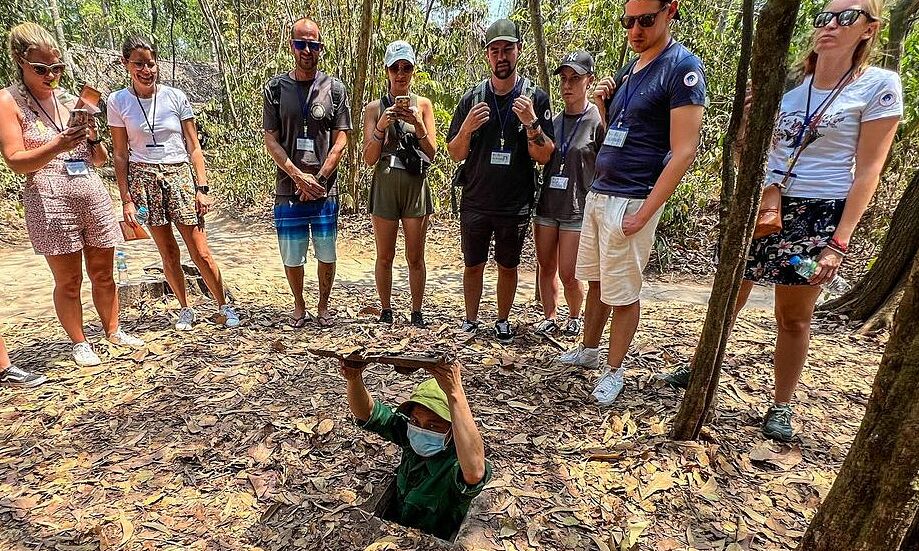
Discover Local Life in District 5’s Chinatown
Far from the polished cafes and skyscrapers of District 1, District 5 (better known as Chợ Lớn) invites you into a world where Vietnamese and Chinese cultures have blended for centuries. As one of the oldest and largest Chinatowns in Southeast Asia, this area bursts with chaotic energy, vibrant colors, and rich cultural heritage.
Wander through herbal medicine shops, lantern-lit alleyways, and historic shophouses filled with incense smoke and the clatter of Chinese chess games. It’s a place to see the city’s soul beyond the tourist trail.
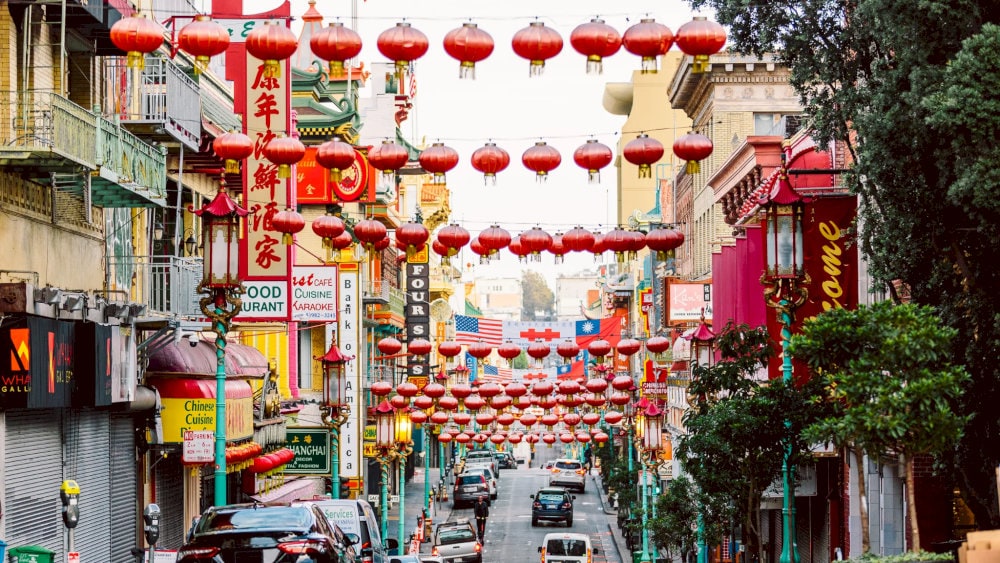
Taste the World’s Best Bánh Mì and Street Food
When it comes to things to do in Ho Chi Minh City, eating isn’t just an activity; it’s a full-blown adventure. Vietnamese cuisine in Saigon is bold, inventive, incredibly flavorful, and wonderfully affordable.
One of the city’s culinary icons is the legendary bánh mì, a perfect fusion of Vietnamese ingredients and French colonial influence. A crisp, airy baguette filled with pickled vegetables, herbs, chili, pate, and grilled meats. Simple, but unforgettable.
What to eat:
- Bánh mì Huỳnh Hoa – the “luxury” bánh mì shop everyone lines up for
- Cơm tấm – check out Cơm Tấm Ba Ghiền in Phú Nhuận
- Ốc (sea snails) – best eaten with beer in local alley restaurants

Take a Day Trip to the Mekong Delta
If you want to escape the urban buzz of Ho Chi Minh City, a day trip to the Mekong Delta is a peaceful escape, offering a glimpse into rural life along Vietnam’s southern waterways.
You’ll cruise through narrow palm-shaded canals in a wooden sampan, visit local workshops that make coconut candy, rice paper, and honey, then explore the vibrant Cai Be floating market, where boats piled high with tropical fruits and flowers drift by in a colorful, time-honored dance of trade. It’s a serene, immersive experience that contrasts beautifully with the energy of Ho Chi Minh City.
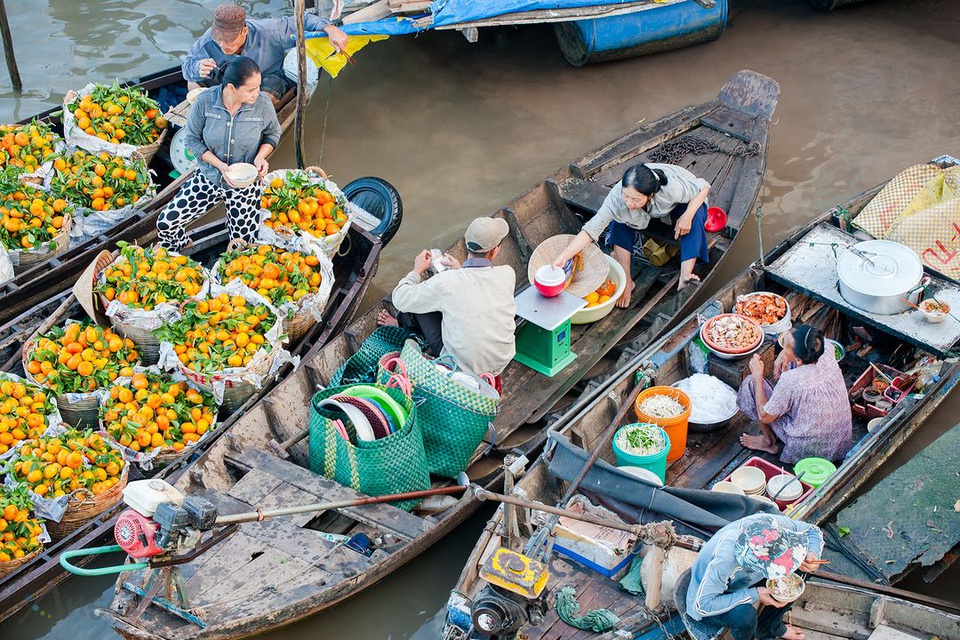
Enjoy the Organized Chaos of Nguyen Hue Walking Street
By night, Nguyen Hue Walking Street becomes a full-blown celebration of Saigon after dark, a living snapshot of what happens when an entire city lets loose after working its butt off all day.
Couples dance to live street performers, kids weave through the crowd on hoverboards, and families stroll beneath the LED-lit skyline. Teenagers sing, vendors hustle, and fountains pulse with light and music. Especially on weekends, this is where you’ll see the city’s wild energy poured out into the street - a pure, unfiltered expression of Ho Chi Minh City’s urban soul.
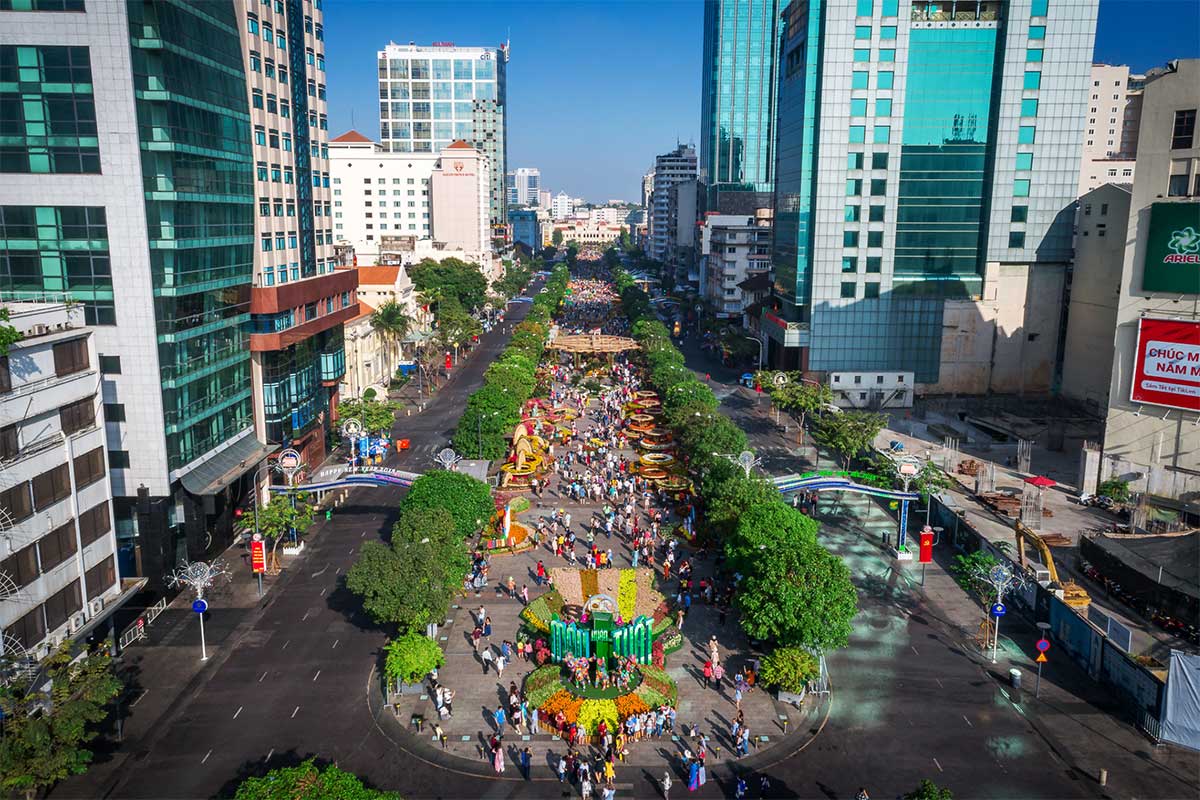
Explore the City with a Hop-on Hop-off Bus Tour
The Hop-on Hop-off bus is a convenient way to explore Ho Chi Minh City’s top attractions without the hassle. With open-top double-decker buses, audio guides in multiple languages, and stops at landmarks like the Notre-Dame Cathedral, Independence Palace, War Remnants Museum, and Ben Thanh Market, it’s perfect for first-time visitors.
You can hop on and off at your own pace, with buses running every 30–60 minutes. A 24-hour pass costs around 500,000 VND (~$19), and shorter or combo tickets are also available. The night loop offers a scenic ride through Saigon’s illuminated streets.
With free Wi-Fi, water, and city commentary onboard, this tour offers a stress-free way to see the city in just a few hours.
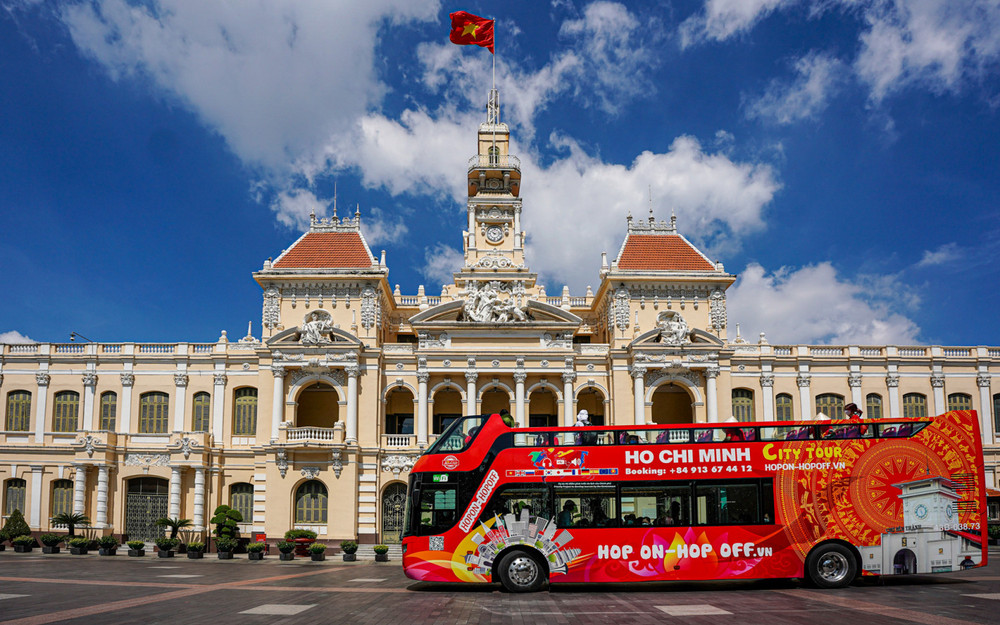
Best Time to Visit Ho Chi Minh City
Ho Chi Minh City has a tropical climate with two main seasons: dry and rainy. So you can visit year-round. But depending on your travel style, one season might suit you better than the other. Here's a breakdown to help you plan:
Dry Season (December to April)
- Weather: Sunny, low humidity, minimal rain
- Ideal for: Sightseeing, walking tours, rooftop bars, Mekong Delta trips
- Temperature: 26 - 34°C (79 - 93°F)
The dry season is the most popular time to visit Ho Chi Minh City, especially from December to February, when the weather is coolest and most comfortable. If you visit during the Tet Holiday (Vietnamese Lunar New Year, usually in late January or early February), you can see the city decorated with flowers, lights, and vibrant celebrations. Just be aware that some shops and businesses close during the holiday.
Rainy Season (May to November)
- Weather: Afternoon rain showers, high humidity
- Ideal for: Indoor attractions. spa days or food tours
- Temperature: 27 - 30°C (81 - 95°F)
Rain typically falls in short, heavy bursts in the late afternoon, so you can still enjoy most of the day, but remember to bring a light raincoat or compact umbrella. Plus, the city looks greener, and there are fewer tourists, which means lower prices on hotels and tours.
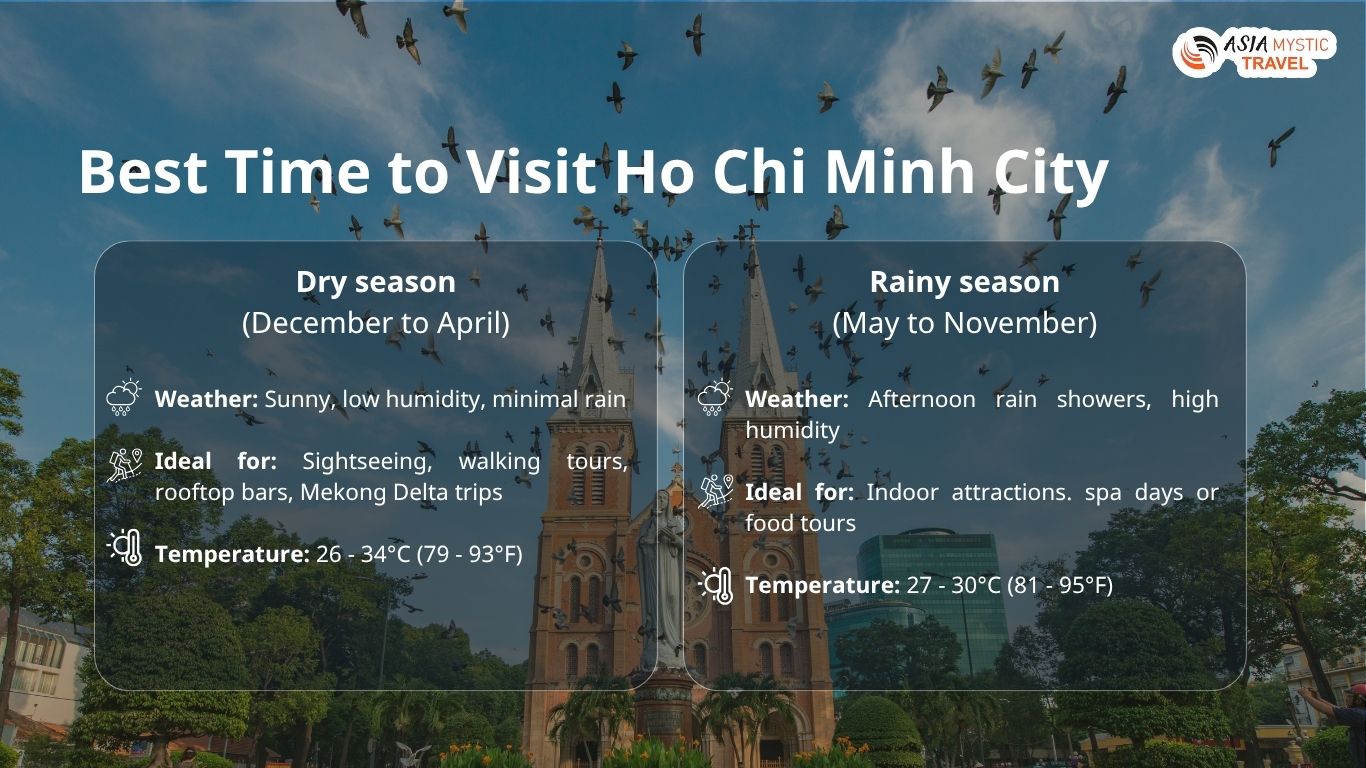
How to Get to and Around Ho Chi Minh City
Getting to and around Ho Chi Minh City is easier than many travelers expect. As Vietnam’s busiest and most cosmopolitan metropolis, the city is well-connected by air and packed with modern transport options that make exploring both exciting and manageable.
Getting There
Ho Chi Minh City is served by Tan Son Nhat International Airport (SGN), Vietnam’s busiest airport, located just 6–8 km from District 1 - the city’s central hub.
The airport welcomes direct international flights from major cities like Bangkok, Singapore, Seoul, Tokyo, Kuala Lumpur, and beyond, as well as domestic flights from Hanoi, Da Nang, and other Vietnamese destinations.
Getting Around the City
Ho Chi Minh City is large and lively, but surprisingly navigable once you get your bearings.
- Ride-Hailing Apps: Grab and Be (a local competitor) are the easiest ways to get around by motorbike or car. Fares are low, and you can pay in cash or by card.
- Public Buses: Very cheap, but routes can be confusing for newcomers. Better suited for longer stays.
- Metro: Ho Chi Minh City Metro is under construction. Line 1 (Ben Thanh – Suoi Tien) is expected to launch soon, offering a clean, fast alternative for commuting.
FAQs
Q: How many days should I spend in Ho Chi Minh City?
A: Most travelers spend 3 to 4 days in Ho Chi Minh City. That gives you enough time to explore the main attractions, take a day trip to the Cu Chi Tunnels or Mekong Delta, and enjoy the city’s food, nightlife, and local markets.
Q: What is the best time of year to visit Ho Chi Minh City?
A: The dry season (December to April) is the best time to visit, with sunny weather and lower humidity. It’s ideal for outdoor exploration, sightseeing, and enjoying rooftop bars.
Q: Can I use US dollars in Ho Chi Minh City?
A: Vietnam’s official currency is the Vietnamese Dong (VND). Some high-end hotels and tour agencies may accept USD, but for daily expenses, you'll need to pay in VND. ATMs are widely available, and currency exchange is easy at banks and licensed counters.
From iconic landmarks and hidden temples to mouthwatering street food and vibrant markets, there are countless things to do in Ho Chi Minh City that suit every style of traveler.
If you're looking for a tailored trip with a customizable itinerary, handpicked hotels, and local experiences that match your interests, get a quote by dropping us your request here or emailing us at info@asiamystictravel.com. We’re also available on WhatsApp, just message us at +84 963 623 907, and let’s start planning your perfect journey
Quick Contact
What do customers say about us?
Join us to experience a trip that will make you remember forever
